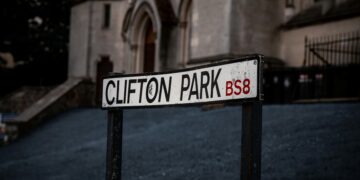Table of Contents
Part 1: The Performance Paradox: My Descent into the Fog
The Myth of the Productive Nightcap
For years, my life was a tightly controlled experiment in human performance.
As a medical researcher, my days were a relentless cycle of grant proposals, data analysis, and lab work.
My evenings were supposed to be for recovery, but my mind, buzzing with hypotheses and statistical models, refused to power down.
Sleep, I knew, was the bedrock of cognitive function, and I couldn’t afford to lose a single hour.
So, I did what millions of intelligent, high-achieving people do: I prescribed myself a solution.
My solution came in a bottle of Cabernet Sauvignon.
A single glass, maybe two, was my nightly ritual.
I told myself it was a strategic tool, a sophisticated bio-hack to quiet the cerebral noise.
Alcohol, I reasoned from my textbook understanding, is a central nervous system depressant.1
It slows brain activity.
For a mind that wouldn’t stop running, what could be more logical than applying a gentle brake? It worked, or so I thought.
The wine would reliably quiet my racing thoughts, and I’d drift off to sleep quickly.
I was, in my mind, optimizing my downtime.
I wasn’t alone in this belief; research confirms that around 20% of American adults use alcohol as a sleep aid, turning to a nightcap to find rest.3
I was just another member of a very large, very mistaken club.
The Creeping Fatigue: A Failure I Couldn’t Explain
The problem was, my experiment was failing.
Slowly, almost imperceptibly at first, a fog began to roll in.
It wasn’t the groggy, head-pounding misery of a classic hangover.
I was meticulous about hydration and never drank to excess.
This was something different.
It was a deep, cellular weariness.
A persistent lack of mental sharpness.
My creativity, once a reliable wellspring, felt shallow.
My energy, which I guarded so carefully, was chronically low.
I was trapped in a paradox.
I was getting my requisite seven to eight hours of sleep every night.
My sleep tracker, a device I trusted implicitly, confirmed the duration.
Yet, I felt profoundly unrested.
I blamed everything else: the pressure of my work, the early mornings, the inevitable toll of aging.
The one thing I didn’t blame was my “solution.” My nightly glass of wine was the non-negotiable variable, the one tool I believed was holding my fragile routine together.
The breaking point came during a departmental review for a major research grant.
It was a high-stakes presentation, the culmination of months of work.
I had prepared meticulously.
I had slept a full eight hours the night before, fortified by my usual two glasses of wine.
But when I stood up to speak, my mind was a swamp.
Data points I knew by heart were just out of reach.
When a senior colleague posed a challenging question, the gears in my brain turned with a slow, grinding friction.
I fumbled for an answer I should have been able to deliver with razor-sharp precision.
The feeling wasn’t panic or nervousness; it was an inexplicable cognitive deficit.
I felt like I was operating at 70% capacity, my mental processing speed throttled by an invisible governor.
I left that meeting not just disappointed, but deeply unnerved.
My most trusted tool for performance had led directly to my most humiliating professional failure.
This experience forced me to confront a disquieting reality.
The most dangerous state isn’t always a dramatic collapse.
Sometimes, it’s a slow, insidious erosion of your best self, a “drift to failure” where chronic, low-grade fatigue becomes your new normal.5
You believe you are functioning, even succeeding, while your peak potential is being silently stripped away.
The initial benefit—falling asleep faster—was obvious and immediate.4
The damage—the fragmented sleep, the neurological disruption—was happening while I was unconscious, hidden from view.
The next-day fatigue was real, but I misattributed its cause.
This is the subtle trap many “gray area drinkers” fall into; they are still functioning, holding down jobs and relationships, but they are tired of spending immense willpower just to maintain a baseline that feels perpetually depleted.7
My “solution” wasn’t just ineffective; it was the very source of the problem.
Part 2: The Epiphany: Unmasking Alcohol as a Predatory Biological Lender
The Investigation: Turning My Research Skills Inward
That failed presentation was my catalyst.
The researcher in me, humbled and furious, took over.
I pushed aside my assumptions and began a deep dive into the neurobiology of alcohol and sleep, determined to understand the mechanism of my own undoing.
My initial knowledge was correct but dangerously incomplete.
Yes, alcohol is a Central Nervous System (CNS) depressant that slows brain activity, but that simple definition was like describing a hurricane as “a bit of wind and rain”.1
It failed to capture the violent, paradoxical, and ultimately destructive nature of the storm it unleashes in the brain.
I devoured studies, scoured journals, and pieced together the complex puzzle.
I learned about the biphasic effects, the neurotransmitter cascades, and the brutal impact on sleep architecture.
The science was clear, but I needed a framework to hold it all together, a way to translate the cold, hard data into a visceral, unforgettable truth.
The Breakthrough Analogy: From Behavioral Economics to Biology
The epiphany didn’t come from a neuroscience journal.
It came, unexpectedly, from a book on behavioral economics.
I was reading about the tactics of predatory lenders, and the parallels struck me with the force of a physical blow.
The language used to describe these deceptive financial schemes mapped perfectly onto the biological processes I had been studying.9
Suddenly, I had my framework.
Alcohol is not a gentle sleep aid.
Alcohol is a predatory biological lender.
This new paradigm—this non-obvious analogy—changed everything.
It reframed the entire problem.
The question was no longer, “Does alcohol help you sleep?” The real question was, “What is the true cost of the sleep that alcohol provides?”
Consider the tactics of a predatory lender:
- A Deceptive Offer: They promise a quick, easy solution to an immediate problem (like needing cash now), offering terms that seem too good to be true.9 Alcohol does the same, offering the “easy credit” of rapid drowsiness to a mind desperate for rest.
- Hidden Fees and Crippling Interest: The loan agreement is filled with fine print. The true cost—the exorbitant interest rates and hidden fees—isn’t apparent until it’s too late. Alcohol’s “fine print” includes mid-night awakenings, suppressed restorative sleep, and next-day fatigue, costs that aren’t advertised upfront.
- Targeting the Vulnerable: Predatory lenders prey on those who are in distress and feel they have no other options.9 Alcohol’s siren song is most potent when we are stressed, anxious, and exhausted—the very moments we are most vulnerable.
- The Debt Spiral: The initial loan doesn’t solve the underlying problem; it makes it worse. The borrower is soon unable to pay the interest and must take out another, larger loan just to stay afloat, sinking deeper into debt. This is the vicious cycle of the nightcap: the more you rely on alcohol’s “loan” of sleep, the more “sleep debt” you accumulate, making you feel more tired and more in need of another loan the next night.
This analogy became my key.
It allowed me to see the full picture—the bait, the switch, and the crushing debt.
Alcohol wasn’t my partner in performance; it was a loan shark for my biology, and it was time to foreclose.
Part 3: The Deceptive “Introductory Offer”: The Bait-and-Switch in Your Brain
Every predatory loan begins with an enticing offer, a moment where the deal seems undeniably good.
Alcohol’s “introductory offer” is a masterful piece of neurochemical deception, a biological bait-and-switch that convinces you you’re getting a great deal, right before the hidden terms kick in.
The Lure: A Moment of Stimulation
Paradoxically, for a substance classified as a depressant, the first effect of a drink is often a feeling of energy and elation.
This is the “bait.” When alcohol enters your brain, it triggers a release of dopamine in your reward pathways, particularly the nucleus accumbens.8
This is the same neurotransmitter associated with pleasure, motivation, and reward.
It’s why that first glass of wine can make you feel more sociable, confident, and “up”.11
This initial stimulant-like phase is the “no money down, zero-percent interest” teaser rate.
It feels good.
It feels like a benefit.
It’s what makes people reach for a second drink, seeking to prolong that euphoric lift.13
The Switch: The Mechanics of Sedation
But this stimulation is short-lived.
As your Blood Alcohol Concentration (BAC) rises, the “switch” occurs, and alcohol’s true nature as a depressant takes over with overwhelming force.14
To understand this, it helps to think of your brain’s overall activity as being controlled by two main systems: a “brake” pedal and an “accelerator” pedal.15
- The Brake Pedal (GABA): The brain’s primary inhibitory neurotransmitter is called gamma-aminobutyric acid, or GABA. Its job is to slow things down, reduce neuronal excitability, and produce feelings of calm and relaxation.17 Alcohol is a powerful GABA agonist. It binds to GABA receptors, dramatically enhancing their effect. It’s like someone slamming their foot on your brain’s brake pedal, forcing it into a state of sedation.13
- The Accelerator Pedal (Glutamate): The brain’s main excitatory neurotransmitter is Glutamate. It’s responsible for speeding up brain activity, and it’s crucial for learning and memory.17 While alcohol is flooring the brake, it’s simultaneously cutting the fuel line to the accelerator. It inhibits Glutamate’s action, particularly at the NMDA receptors, further reducing brain activity and contributing to the cognitive impairment, memory lapses, and slurred speech of intoxication.8
This one-two punch—supercharging the brain’s inhibitory system while suppressing its excitatory system—is what produces the powerful sedative effect.
This is the “loan” being disbursed.
You feel drowsy and fall asleep quickly.
But what you’ve received is not natural, restorative sleep.
It’s a chemically induced state of unconsciousness, and the terms of repayment are brutal.
Table 1: The Biphasic Effect of Alcohol: A “Bait-and-Switch” on Your Brain
This table breaks down the two distinct phases of alcohol’s effect, illustrating the deceptive “introductory offer” versus the harsh reality that follows.
| Phase (Blood Alcohol Concentration – BAC) | Dominant Neurochemical Effect | Subjective & Physiological Experience |
| Rising BAC (First 1-2 Hours) | The “Bait”: Dopamine release provides a sense of euphoria and energy. Alcohol begins enhancing GABA’s inhibitory effects. | The “Offer”: Feeling energized, confident, and sociable, followed by relaxation and drowsiness. This is the appealing, sedative effect that lures you in. You fall asleep fast. |
| Falling BAC (2+ Hours into Sleep) | The “Switch”: Dopamine effects fade. The brain compensates for the artificial sedation by up-regulating excitatory Glutamate. Adenosine, which built up artificially, is rapidly cleared. | The “Hidden Cost”: The brain “rebounds” into a state of over-stimulation. Sleep becomes light, fragmented, and restless. Frequent awakenings occur. |
Part 4: The Hidden Fees & Soaring Interest: The 3 A.M. Wake-Up Call
The most deceptive loans are those with hidden fees and ballooning interest payments that you don’t see coming.
Alcohol’s sleep loan is no different.
The contract you sign with that first sip contains clauses that guarantee your sleep will be disrupted, all orchestrated by a clever hijacking of your body’s natural sleep drive.
The First Hidden Fee: Hijacking Your Body’s Sleep Drive
Your body has a beautiful, built-in system for regulating sleep called sleep homeostasis.3
Think of it like a pressure valve.
From the moment you wake up, a neurochemical called
adenosine begins to build up in your brain.
The longer you’re awake, the more adenosine accumulates, increasing the “sleep pressure” until it reaches a point where you feel irresistibly tired and fall asleep.4
During sleep, your brain clears this adenosine away, reducing the pressure so you can wake up feeling refreshed.
Here’s where the predatory lender gets clever.
Alcohol “cooks the books.” It directly interferes with this system by blocking the reuptake of adenosine in your brain.21
This causes adenosine levels to spike artificially and prematurely.
The drowsiness you feel after a drink isn’t your body’s natural readiness for sleep; it’s a chemical manipulation.
Alcohol is essentially putting its thumb on the scale, creating a powerful, false sleep pressure that tricks you into falling asleep before you’re truly ready.
You’re not tired; you’re being drugged into a state that mimics tiredness.
This mechanism reveals a fascinating and powerful connection.
The way alcohol promotes sleepiness is the direct inverse of how caffeine promotes wakefulness.
Caffeine works primarily as an adenosine antagonist; it plugs into your brain’s adenosine receptors without activating them, effectively blocking the “sleepy” signal from getting through.21
Alcohol, on the other hand, increases the amount of the “sleepy” signal itself.
Your evening nightcap and your morning coffee are thus locked in a chemical war over the same biological territory.
This reveals the profound artificiality of the alcohol-induced state; you’re using one substance to create a problem (next-day fatigue) that you then use another substance to solve.
The Interest Payment: The Rebound Effect
Now for the inevitable consequence.
Your liver metabolizes alcohol at a steady, fixed rate, roughly one standard drink per hour.23
As the alcohol is cleared from your system in the middle of the night, the artificial brake on adenosine reuptake is suddenly released.
The excess adenosine that caused you to crash into sleep is cleared away.
But while your body was being drugged into sedation, your brain wasn’t passive.
It was fighting back.
To counteract the powerful depressive effects of alcohol and enhanced GABA, your brain’s excitatory systems, led by glutamate, went into overdrive, becoming more sensitive to try and maintain equilibrium.17
So, what happens at 3 A.M. when the alcohol is gone? The sedative pressure vanishes, but you’re left with a brain that is now primed for arousal.
The accelerator is floored, but the brake has been released.
This is the rebound effect.4
Your system, no longer suppressed, jolts into a state of hyper-arousal.
Your heart rate may increase.
Your body temperature can rise.
You are thrust from deep sleep into a much lighter, more fragmented stage of sleep, or you wake up entirely, mind racing and unable to get back to the peaceful slumber you seek.6
This is the first, and most jarring, interest payment on your sleep loan.
It’s the biological equivalent of the lender calling in the middle of the night to demand payment.
Part 5: Seizing Your Most Valuable Asset: The Destruction of Quality Sleep
If the 3 A.M. wake-up call is the most obvious interest payment, the most insidious cost of alcohol’s sleep loan is the seizure of your most valuable biological asset: the quality of your sleep itself.
The lender isn’t just taking your cash; it’s draining your retirement account.
It’s undermining the very processes your brain relies on to repair, restore, and prepare you for the next day.
The Architecture of Rest: Why All Sleep Is Not Created Equal
To understand the damage, you first have to understand that sleep is not a monolithic state of unconsciousness.
It’s a highly structured architectural process, a cycle of distinct stages that your brain moves through roughly every 90 minutes.23
The two most important phases are Slow-Wave Sleep (SWS) and Rapid Eye Movement (REM) sleep.
- Slow-Wave Sleep (SWS): Also known as deep sleep, this is the stage of physical restoration. During SWS, your body repairs tissues, builds bone and muscle, and strengthens the immune system.25
- Rapid Eye Movement (REM) Sleep: This is the stage of mental and emotional restoration. During REM, your brain is highly active. This is when most dreaming occurs, and it’s absolutely critical for consolidating memories, processing emotions, and facilitating learning.6 REM sleep is what allows you to wake up feeling not just physically rested, but mentally sharp, emotionally balanced, and ready to tackle complex problems.
The Heist: How Alcohol Sabotages REM Sleep
Here is the crux of the predatory loan.
Alcohol’s contract has a clause written in invisible ink that gives it the right to seize your REM sleep.
While alcohol consumption can initially increase the amount of deep SWS you get in the first half of the night—a deceptive trick that can make you feel like you’re sleeping deeply—it does so at the direct expense of REM sleep.27
The scientific evidence is unequivocal: alcohol significantly suppresses REM sleep, especially during the first few sleep cycles.6
It delays the onset of your first REM period, shortens its duration, and fragments its structure.27
When the rebound effect kicks in during the second half of the night, your brain may try to overcompensate with a surge of chaotic REM sleep, but this is not the same as the organized, restorative REM you’ve lost.6
This often manifests as vivid, stressful, or anxiety-inducing dreams that can further disrupt sleep.
The lender has performed a clever heist.
It has given you a bit more of one asset (SWS) while stealing your most precious one (REM).
You may have slept for eight hours, but your brain has been robbed of its essential maintenance period.
You wake up with your body having rested, but your mind having been through the wringer.
This leads to a crucial realization: the nagging anxiety, irritability, and emotional fragility that so many people experience the day after drinking—often dismissed as a psychological “hangover” or “hangxiety”—is not just in your head.
It is a direct, physiological consequence of REM sleep deprivation.
REM sleep is your brain’s nightly emotional regulation service.6
It’s how you process the anxieties and frustrations of the previous day, filing them away and resetting your emotional baseline.
When alcohol suppresses REM sleep, you wake up with a backlog of unprocessed emotional data.
Your brain didn’t get to run its nightly emotional defragmentation program.
As a result, you face the new day with a lower threshold for stress, a shorter fuse, and a feeling of being emotionally raw and vulnerable.
The emotional hangover is a symptom of a real, measurable “REM debt.”
Part 6: The Debt Spiral: How One Night’s Loan Creates a Week of Fatigue
A single predatory loan can be damaging.
A cycle of them can be ruinous.
The true danger of using alcohol as a sleep aid lies in its tendency to create a self-perpetuating debt spiral, where the “solution” for one night’s fatigue becomes the cause of the next day’s, digging you into a deeper and deeper biological hole.
The Compounding Deficit
Let’s trace the cycle over a few days:
- Night 1: Stressed and unable to switch off, you take out a “sleep loan” with a couple of glasses of wine. You fall asleep quickly (the loan is disbursed) but wake up at 3 a.m. (the rebound effect). Your REM sleep is suppressed (your most valuable asset is seized).
- Day 2: You wake up feeling physically tired and mentally foggy. Your emotional resilience is low due to the REM debt, making you more irritable and anxious. Your performance at work suffers, which increases your stress levels.
- Night 2: You end the day feeling even more stressed and exhausted than the day before. The thought of lying in bed with your mind racing is unbearable. The quick, easy “solution” of another alcohol loan seems more appealing, more necessary, than ever.
You take out another loan, this time perhaps a slightly larger one, because you’ve started to build a tolerance to alcohol’s sedative effects.4
The cycle repeats, but each time the debt grows.
The fatigue becomes more profound, the mental fog thicker.
You are now in a compounding deficit, borrowing from your future wellness to pay for a fleeting moment of present relief.
Sobriety Fatigue: Paying Back the Accumulated Debt
This model of a compounding sleep debt provides a powerful framework for understanding a phenomenon well-known in recovery communities: “sobriety fatigue.” When people who have been drinking regularly, even moderately, decide to stop, they often expect an immediate surge of energy and vitality.
Instead, many are hit with a wave of profound exhaustion that can last for weeks or even months.31
This experience, which can be deeply discouraging, is often misunderstood.
It’s not a sign that sobriety is failing; it’s a sign that the body is finally beginning to pay back its massive, accumulated biological debt.
For weeks, months, or years, the body has been in a state of constant crisis management.
The brain’s neurochemistry has been thrown into disarray, with the GABA and glutamate systems locked in a compensatory battle.18
The natural sleep architecture has been continuously demolished and rebuilt on a faulty foundation.
When the alcohol is finally removed, the body can begin the long, energy-intensive process of healing and recalibration.
Think of it like a business that has been running on fraudulent accounting and predatory loans for years.
When a new CEO takes over and decides to get the books in order, the initial process is painful and costly.
Debts must be repaid.
Faulty infrastructure must be torn down and rebuilt.
The company might look less productive on the surface during this restructuring phase.
Sobriety fatigue is the biological equivalent of this process.
Your body is finally paying its creditors, rewiring its neural pathways, restoring its natural circadian rhythms, and healing damaged tissues.
This healing process is not free; it requires an enormous amount of energy.
The exhaustion you feel is the price of recovery.
It is the slow, arduous, but ultimately liberating process of climbing out of debt and back into the black.
Part 7: Financial Freedom: How to Declare Bankruptcy on Sleep Debt and Reclaim Your Energy
The Success Story: My Path to Restorative Sleep
My journey out of the fog began the moment I fully embraced the “Predatory Lender” paradigm.
I saw my nightly wine not as a tool, but as a high-interest loan I could no longer afford.
I declared biological bankruptcy.
I stopped taking out the loans and started the slow, disciplined work of building genuine “sleep wealth.”
The first few weeks were challenging.
I experienced the “sobriety fatigue” firsthand, my body demanding repayment for years of accumulated debt.
I had to relearn how to fall asleep naturally, to trust my body’s own rhythms without chemical intervention.
But slowly, things began to change.
The 3 A.M. awakenings stopped.
I started waking up before my alarm, feeling not just rested, but restored.
The mental fog lifted, replaced by a clarity I hadn’t realized I’d lost.
My work improved dramatically.
I was sharper, more creative, and more resilient.
I had escaped the debt spiral and achieved a kind of physiological freedom that was more valuable than any temporary, chemically-induced peace.
Your Action Plan for Escaping Sleep Debt
Escaping this cycle is possible for anyone.
It requires understanding the deceptive terms of alcohol’s contract and implementing a strategic plan to build real, sustainable sleep equity.
Here is an action plan framed by the financial principles of escaping debt.
1. Read the Fine Print (Know the Cost):
The first step to financial health is understanding your expenditures.
The same is true for alcohol.
Be honest about how much you’re drinking and when.
Recognize that for many people, especially those sensitive to its effects, even a single drink can disrupt sleep architecture.34 While choosing lighter-colored liquors like gin or vodka over darker ones like bourbon or red wine can reduce hangover-inducing compounds called congeners, this does not negate alcohol’s fundamental disruption of your sleep cycle.36 The core problem remains.
2. Set Your Repayment Schedule (Timing is Everything):
The single most effective strategy for mitigating alcohol’s impact on sleep is timing.
Adhere to the 3-4 Hour Rule: finish all alcoholic consumption at least three, and preferably four, hours before you plan to go to bed.23 Your body metabolizes alcohol at a relatively fixed rate.
Giving it this head start allows your liver to process and clear most of the alcohol from your bloodstream before you enter your crucial sleep cycles.
Think of it as paying off the loan before the end of the business day.
3. Build Your Financial Health (Invest in Real Sleep Hygiene):
You cannot borrow your way to wealth.
You must build it through sound habits.
Replace the “loan” of a nightcap with investments in genuine sleep hygiene.
- Hydration Pacing: Alcohol is a diuretic, meaning it causes you to lose fluid and become dehydrated, which worsens sleep quality and next-day fatigue.37 For every alcoholic beverage you consume, drink a full glass of water. This helps your body process the alcohol and mitigates the “dehydration tax”.36
- The Wind-Down Routine: The ritual of a nightcap is powerful. You must replace it with a new, healthier ritual that signals to your brain that it’s time to sleep. An hour before bed, turn off screens and engage in a calming activity: read a physical book, listen to soothing music, take a warm bath, or drink a cup of chamomile tea. This builds “sleep equity” through positive, natural association, not chemical debt.41
- Optimize Your Environment: Turn your bedroom into a sanctuary for sleep—a secure asset. Keep it completely dark (use blackout curtains), cool (around 65-68°F or 18-20°C), and quiet. A perfect sleep environment makes it easier to fall asleep naturally and fall back asleep if you do wake.40
4. Find Alternative Investments (Stress Reduction Without Alcohol):
Many of us take out sleep loans to manage stress.
To break the cycle, you must find alternative investments in your mental well-being that yield positive returns instead of debt.
Regular physical exercise is a powerful, evidence-based stress reducer that also improves sleep quality.
Practices like meditation and deep breathing can quiet a racing mind more effectively and sustainably than alcohol.44 Spending quality time with friends or tackling a long-neglected project can provide a sense of accomplishment and pleasure through natural dopamine release, not an artificial spike.44
Table 2: Your Action Plan for Escaping Sleep Debt
This table translates these strategies into a practical guide, linking each action to its “financial” rationale within our new paradigm.
| Strategy | Why It Works (The “Financial” Rationale) | Practical Implementation |
| The 3-Hour Rule | Allows your body to “pay off” the alcohol before you “close the books” for the night, preventing it from disrupting your most valuable sleep cycles. | Finish your last drink with dinner, not as a nightcap. If you go out, have your last call several hours before you plan to head home. |
| Hydration Pacing | Reduces the “dehydration tax” on your system, which can cause headaches and worsen fatigue. Helps your liver and kidneys process the alcohol more efficiently. | For every beer, glass of wine, or cocktail, drink a full glass of water. Keep a water bottle handy throughout the evening. |
| The Wind-Down Ritual | Builds “sleep equity” through positive association, not debt. It trains your brain to relax and prepare for sleep naturally, without a chemical trigger. | For 30-60 minutes before bed, put away all screens. Brew herbal tea, read a book, do gentle stretching, or listen to a calming podcast. |
| Smart Snacking | Eating a meal containing protein, fat, and complex carbohydrates before drinking slows alcohol absorption, reducing the “shock” to your system and giving your body more time to process it. | Never drink on an empty stomach. Have a balanced meal before you start drinking. Avoid sugary mixers that can cause blood sugar crashes. |
| Environment Optimization | Creates a “secure asset”—a perfect environment for restorative sleep. It minimizes external disruptions that your alcohol-sensitized brain might latch onto. | Use blackout curtains or an eye mask. Set your thermostat to a cool temperature. Use earplugs or a white noise machine if necessary. |
Ultimately, understanding alcohol as a predatory lender is about empowerment.
It’s about seeing the transaction for what it is and recognizing that the terms are always rigged against you.
The promise of quick, easy rest is a deception.
True rest, the kind that fuels your mind, restores your body, and stabilizes your emotions, cannot be borrowed.
It must be earned.
By rejecting the loan and investing in your own biology, you can escape the debt spiral and reclaim the most valuable currency you have: your energy.
Works cited
- Alcohol: MedlinePlus, accessed August 9, 2025, https://medlineplus.gov/alcohol.html
- medlineplus.gov, accessed August 9, 2025, https://medlineplus.gov/alcohol.html#:~:text=Alcohol%20is%20a%20central%20nervous,behavior%2C%20and%20self%2Dcontrol.
- Alcohol interferes with body’s ability to regulate sleep | ScienceDaily, accessed August 9, 2025, https://www.sciencedaily.com/releases/2014/12/141210162326.htm
- Alcohol and Sleep: What You Need to Know | Psychology Today, accessed August 9, 2025, https://www.psychologytoday.com/us/blog/sleep-newzzz/201801/alcohol-and-sleep-what-you-need-know
- The Parable of the Boiled System Safety Professional: Drift to Failure – NASA Technical Reports Server (NTRS), accessed August 9, 2025, https://ntrs.nasa.gov/api/citations/20110015770/downloads/20110015770.pdf
- Does alcohol affect REM sleep? Here’s what to know and how to fix it — Calm Blog, accessed August 9, 2025, https://www.calm.com/blog/alcohol-rem-sleep
- Stories from people who quit while they were still functioning : r/stopdrinking – Reddit, accessed August 9, 2025, https://www.reddit.com/r/stopdrinking/comments/1gepg12/stories_from_people_who_quit_while_they_were/
- Is Alcohol a Depressant? – INTEGRIS Health, accessed August 9, 2025, https://integrishealth.org/resources/on-your-health/2022/december/is-alcohol-a-depressant
- Predatory Lending: How To Avoid, Examples, and Protections – Investopedia, accessed August 9, 2025, https://www.investopedia.com/terms/p/predatory_lending.asp
- Alcohol’s Stimulant & Depressant Effects – The Recovery Village Columbus, accessed August 9, 2025, https://www.columbusrecoverycenter.com/alcohol-addiction/stimulant-depressant-effects/
- Is Alcohol a Stimulant or a Depressant? – EHN Canada, accessed August 9, 2025, https://www.edgewoodhealthnetwork.com/resources/blog/is-alcohol-a-stimulant-or-a-depressant/
- (PDF) Stimulant and Sedative Effects of Alcohol – ResearchGate, accessed August 9, 2025, https://www.researchgate.net/publication/51115088_Stimulant_and_Sedative_Effects_of_Alcohol
- Is Alcohol A Depressant? – Addiction Center, accessed August 9, 2025, https://www.addictioncenter.com/alcohol/is-alcohol-a-depressant/
- Is Alcohol a Stimulant or a Depressant? – The Recovery Village Palm Beach at Baptist, accessed August 9, 2025, https://www.floridarehab.com/alcohol/treatment-rehab/is-alcohol-stimulant-or-depressant/
- Can brain stimulation cure addiction? | Yale News, accessed August 9, 2025, https://news.yale.edu/2025/07/28/can-brain-stimulation-cure-addiction
- Neuroplasticity in Human Alcoholism: Studies of Extended Abstinence with Potential Treatment Implications – PMC – PubMed Central, accessed August 9, 2025, https://pmc.ncbi.nlm.nih.gov/articles/PMC4476599/
- Which Neurotransmitter Receptors Do Alcohol And CNS …, accessed August 9, 2025, https://www.treatmentindiana.com/resources/alcoholism-treatment/which-neurotransmitter-receptors-do-alcohol-and-cns-depressants-affect/
- What are the effects of alcohol on GABA? – Ardu Recovery Center, accessed August 9, 2025, https://www.ardurecoverycenter.com/alcohol-effects-on-gaba-neurotransmitters/
- The Effects of Alcohol on the Brain – The Scripps Research Institute …, accessed August 9, 2025, https://www.scripps.edu/newsandviews/e_20020225/koob2.html
- Effects of Alcohol on the Brain | AlcoholAwareness.org, accessed August 9, 2025, https://alcoholawareness.org/health-effects/brain/
- Cognitive impairments by alcohol and sleep deprivation indicate trait …, accessed August 9, 2025, https://www.pnas.org/doi/10.1073/pnas.1803770115
- The Role of the Neuromodulator Adenosine in Alcohol’s Actions – PMC – PubMed Central, accessed August 9, 2025, https://pmc.ncbi.nlm.nih.gov/articles/PMC6826818/
- Alcohol and Sleep – Sleep Foundation, accessed August 9, 2025, https://www.sleepfoundation.org/nutrition/alcohol-and-sleep
- Alcohol affects sleep – here’s how – MD Anderson Cancer Center, accessed August 9, 2025, https://www.mdanderson.org/cancerwise/alcohol-affects-sleep-heres-how.h00-159778023.html
- Here’s How Alcohol Affects Your Sleep | Hackensack Meridian Health, accessed August 9, 2025, https://www.hackensackmeridianhealth.org/en/healthu/2023/06/14/heres-how-alcohol-affects-your-sleep
- Alcohol and Sleep: How Booze Wrecks Your REM | United Recovery Project, accessed August 9, 2025, https://unitedrecoveryproject.com/rehab-blog/how-booze-wrecks-your-rem/
- Alcohol and sleep I: effects on normal sleep – PubMed, accessed August 9, 2025, https://pubmed.ncbi.nlm.nih.gov/23347102/
- Alcohol and the Sleeping Brain – PMC – PubMed Central, accessed August 9, 2025, https://pmc.ncbi.nlm.nih.gov/articles/PMC5821259/
- How Does Alcohol Affect Your Body And Sleep? – Piedmont Healthcare, accessed August 9, 2025, https://www.piedmont.org/living-real-change/how-does-alcohol-affect-your-sleep
- Alcohol’s Effects on Sleep in Alcoholics – PMC – PubMed Central, accessed August 9, 2025, https://pmc.ncbi.nlm.nih.gov/articles/PMC2778757/
- Seven months in, I think I finally shook the fatigue. I promise, you do you better every day : r/stopdrinking – Reddit, accessed August 9, 2025, https://www.reddit.com/r/stopdrinking/comments/1g2qql3/seven_months_in_i_think_i_finally_shook_the/
- Anyone one else struggle with “sobriety fatigue”? : r/stopdrinking – Reddit, accessed August 9, 2025, https://www.reddit.com/r/stopdrinking/comments/1fwt4mj/anyone_one_else_struggle_with_sobriety_fatigue/
- Has anyone felt exhausted in the weeks after quitting drinking? : r/stopdrinking – Reddit, accessed August 9, 2025, https://www.reddit.com/r/stopdrinking/comments/1g6o29m/has_anyone_felt_exhausted_in_the_weeks_after/
- How Does Alcohol Affect Sleep? – Cleveland Clinic Health Essentials, accessed August 9, 2025, https://health.clevelandclinic.org/why-you-should-limit-alcohol-before-bed-for-better-sleep
- Myths and Facts About Sleep – Sleep Foundation, accessed August 9, 2025, https://www.sleepfoundation.org/how-sleep-works/myths-and-facts-about-sleep
- Hangover Symptoms, Remedies & Prevention – Cleveland Clinic, accessed August 9, 2025, https://my.clevelandclinic.org/health/diseases/16627-hangover
- Does Alcohol Make You Sleepy? What We Know – Healthline, accessed August 9, 2025, https://www.healthline.com/health/alcohol/does-alcohol-make-you-sleepy
- Alcohol’s Impact on Sleep: Myths & Realities – Reframe, accessed August 9, 2025, https://www.joinreframeapp.com/blog-post/the-negative-impact-of-alcohol-on-our-sleep
- How to recover from a hangover – Drinkaware, accessed August 9, 2025, https://www.drinkaware.co.uk/facts/health-effects-of-alcohol/general-health-effects/how-to-recover-from-a-hangover
- How to Sleep Better After Drinking Alcohol | ZLEEPY®, accessed August 9, 2025, https://www.zleepy.com/how-to-sleep-better-after-drinking-alcohol/
- 1 week alcohol-free – what’s happening in your body?, accessed August 9, 2025, https://alcoholchange.org.uk/blog/1-week-alcohol-free-whats-happening-in-your-body
- How Alcohol Affects Your Sleep | WithYou – We Are With You, accessed August 9, 2025, https://www.wearewithyou.org.uk/advice-and-information/advice-for-you/how-alcohol-affects-your-sleep
- 10 Simple Hacks to Reducing Alcohol Intake for a Better Night’s Sleep – Sunnyside, accessed August 9, 2025, https://www.sunnyside.co/blog/sleep-hacks
- 6 Alcohol-Free Ways to Unwind at the End of a Long Day – Everyday Health, accessed August 9, 2025, https://www.everydayhealth.com/self-care/alcohol-free-ways-to-unwind-at-the-end-of-a-long-day/






